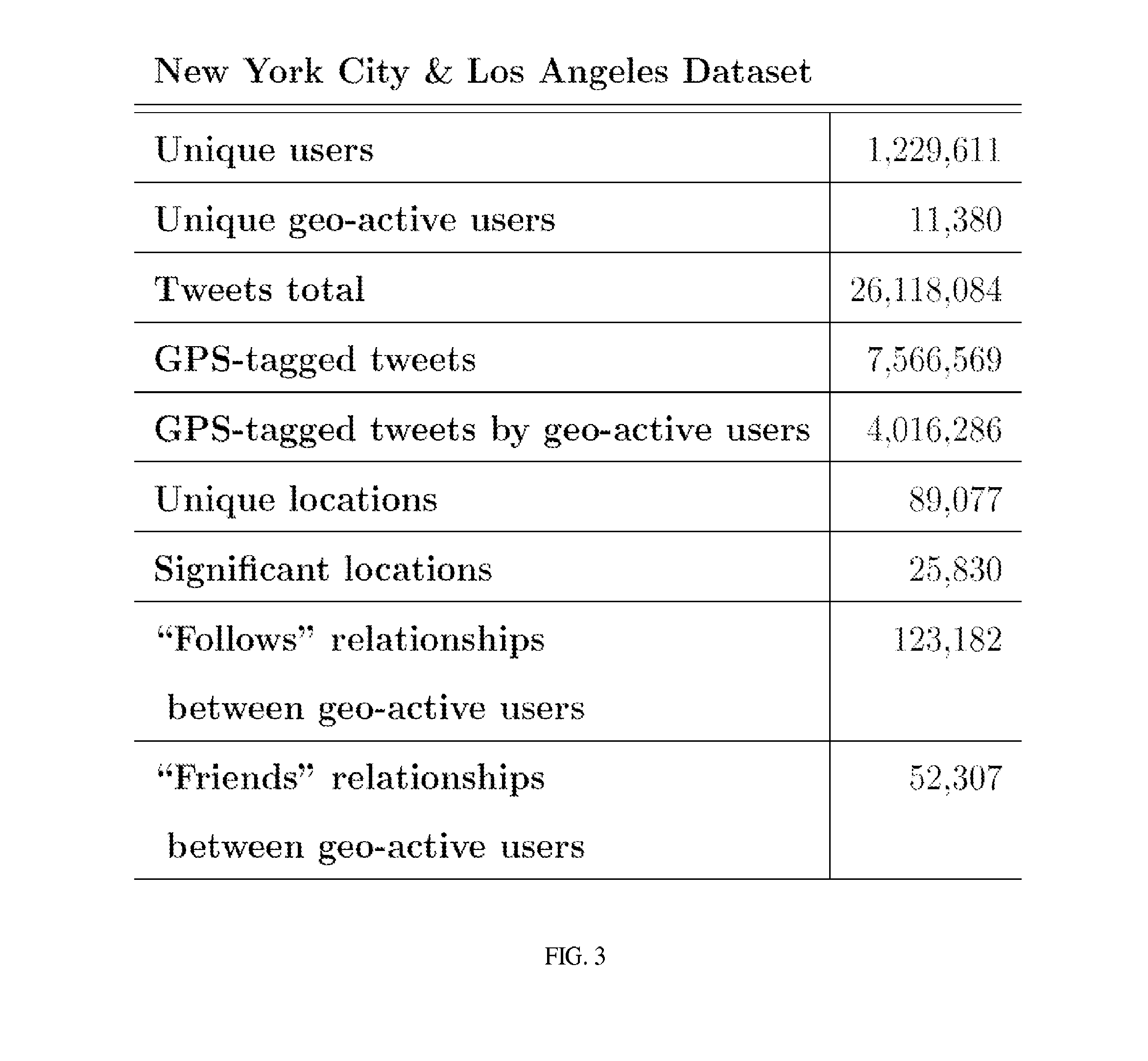Use of social interactions to predict complex phenomena
a technology of social interactions and complex phenomena, applied in the field of computational epidemiology, to achieve the effect of effective respons
- Summary
- Abstract
- Description
- Claims
- Application Information
AI Technical Summary
Benefits of technology
Problems solved by technology
Method used
Image
Examples
example 1
[0049]In this example, publicly-available Twitter data is utilized to automatically detect message (“tweets”) that suggest the author contracted an infectious disease, and this information is combined with geo, social, and / or other temporal data to extract a strong signal of the impact of various previously elusive factors on human health. A CRF model is then used to leverage the information and make predictions about an individual's health state.
[0050]Although this example utilizes publicly-available Twitter data, many other types of data could be similarly utilized. For example, data from other social media or social networking platforms could be used, including but not limited to: Facebook, Twitter, Google+, LinkedIn, Bebo, Orkut, Friendster, MyLife, Classmates.com, Plaxo, Flickr, Last.fm, Myspace, MyHeritage, Foursquare, LiveJournal, Geni.com, XING, Goodreads, and delicious, among many, many others). Further, non-public data could be utilized either by requesting or purchasing a...
example 2
Predicting the Spread of Disease
[0075]In this example, patterns revealed in the previous example can be leveraged in fine-grained predictive models of contagion. This Example is provided only as a means of describing an embodiment is not meant to be limiting.
[0076]Human contact is the single most important factor in the transmission of infectious diseases. Since the contact is often indirect, such as via a doorknob, a more general notion of co-location is the focus. Again, two individuals are considered to be co-located if they visit the same 100 by 100 meter cell within a time window (slack) of length T. For clarity, results are shown for T=12 hours, but virtually identical prediction performance was obtained for Tε{1, . . . , 24} hours. The 100 m threshold was utilized, as that is the typical lower bound on the accuracy of a GPS sensor in obstructed areas, such as Manhattan. Since the focus was on geo-active individuals, co-location could be calculated with high accuracy. The resu...
PUM
 Login to View More
Login to View More Abstract
Description
Claims
Application Information
 Login to View More
Login to View More - R&D
- Intellectual Property
- Life Sciences
- Materials
- Tech Scout
- Unparalleled Data Quality
- Higher Quality Content
- 60% Fewer Hallucinations
Browse by: Latest US Patents, China's latest patents, Technical Efficacy Thesaurus, Application Domain, Technology Topic, Popular Technical Reports.
© 2025 PatSnap. All rights reserved.Legal|Privacy policy|Modern Slavery Act Transparency Statement|Sitemap|About US| Contact US: help@patsnap.com



